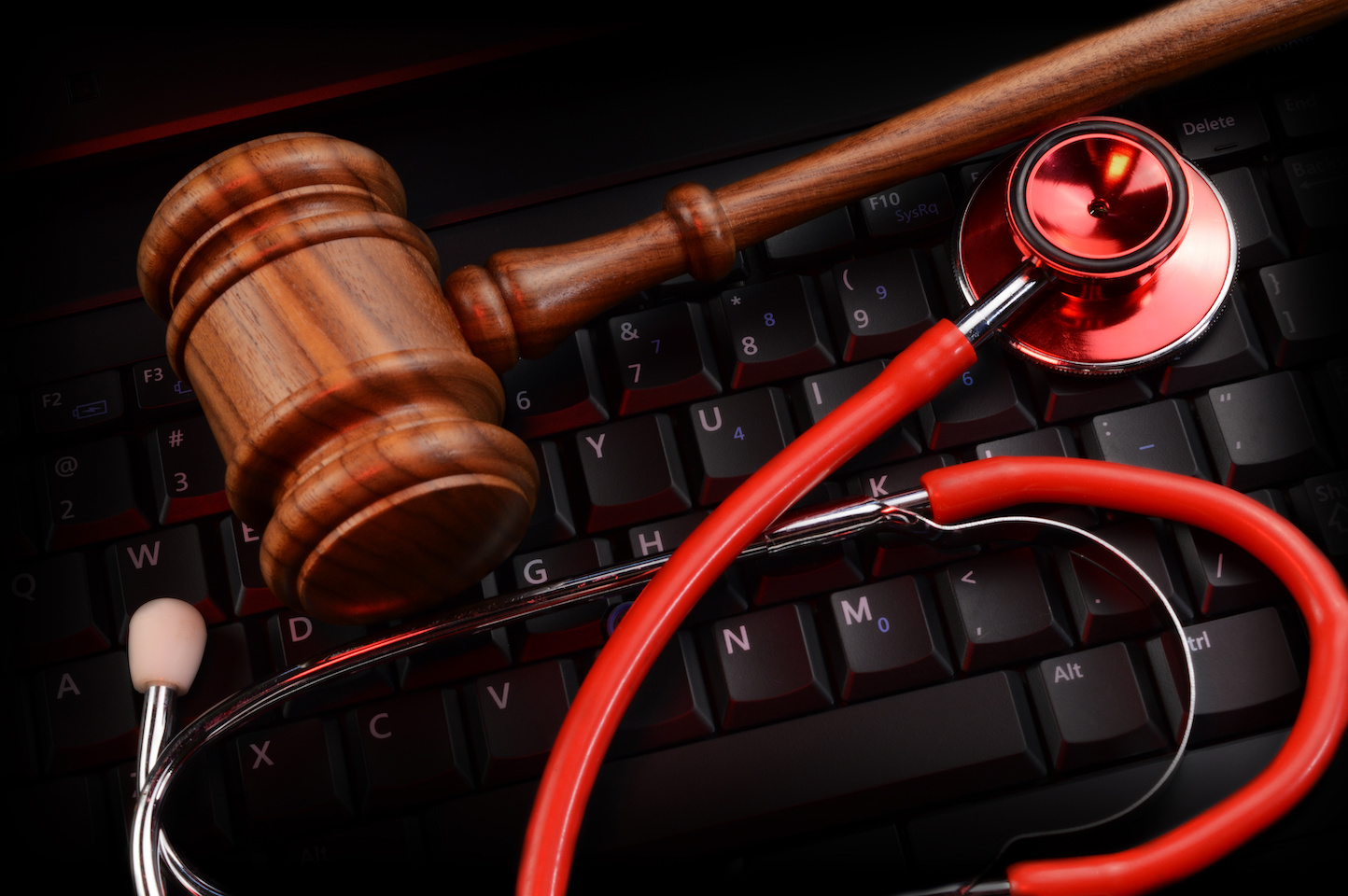”"To err is human, to forgive divine" (Alexander Pope)
The vast majority of people who work in health and social care come to work every day to make a difference in the lives of the people they care for. They aim to provide the very best care they can within highly complex healthcare systems and in the presence of often competing pressures. Sometimes things will and do go wrong.
When things go wrong in healthcare, particularly in combination, this can result in patient harm. A useful analogy (shared by Matt Fogarty, Deputy Director Patient Safety at NHS England & NHS Improvement) to aid the understanding of this concept is the ‘jenga’ tower – removal of one brick may not cause destabilization of the tower but when many bricks are removed consecutively, the tower is compromised and eventually the consequence is a significant incident whereby the tower falls.
 In difficult and stressful circumstances where staffing levels are poor, acuity levels are increased, equipment isn’t working, IT systems aren’t communicating and demand is high, consequences are sometimes inevitable. Even when no specific error occurs, sometimes the desired patient outcome isn’t achieved, and this can also impact on any healthcare employees involved. In a survey we conducted, over 50% of the healthcare employees who responded reported being involved in at least one adverse event during their career; with the majority indicating experience of involvement in a patient safety incident.
In difficult and stressful circumstances where staffing levels are poor, acuity levels are increased, equipment isn’t working, IT systems aren’t communicating and demand is high, consequences are sometimes inevitable. Even when no specific error occurs, sometimes the desired patient outcome isn’t achieved, and this can also impact on any healthcare employees involved. In a survey we conducted, over 50% of the healthcare employees who responded reported being involved in at least one adverse event during their career; with the majority indicating experience of involvement in a patient safety incident.
When a patient is harmed, the primary focus should be on supporting the patient and/or their family, however, the impact on the physical, mental and psychological wellbeing of healthcare staff involved must also be recognised. Sometimes in the aftermath of an incident, the healthcare employees involved are left feeling unsupported and, in some cases feel they are being punished for something they unintentionally did or did not do.
The following diagram demonstrates the process individuals often experience following an adverse event. More detail about each stage is available by clicking on the individual boxes in the diagram.
Recovery after an adverse patient event
event
Of the three possible outcomes after an adverse event, we believe the gold standard should be to support staff to be self-compassionate, self-accepting, hopeful and forward looking, rather than feeling isolated and just surviving, or that they should no longer practice.
If you have been involved in an adverse event or patient safety incident and can associate with the stages and impact described above, please remember you are not alone. The feelings you may be experiencing are likely to be very difficult to deal with but this should ease with support that is tailored to your needs. The healthcare staff we spoke to (see videos on our homepage) all mention the importance of talking to others, including trusted peers, line manager, staff support services and family and friends, about what happened and how they felt. This can support healing, recovery and learning following a patient safety incident. Many of the respondents in our survey, who had experiences of being involved in a patient safety incident, shared how they went on to contribute to preventing a similar patient safety incident from happening again by making changes to their own practice and/or the processes in the organisation where they worked.
Ultimately, healthcare employees will only become ‘agents of change’ when they access support which allows them to be self-compassionate, self-accepting and to focus on learning when things go wrong.
When should you seek medical advice?
Red flag signs to watch out for
It’s normal to experience upsetting and confusing thoughts after an adverse (often traumatic) event, but most people recover from this upset naturally over a few weeks. If you are still having problems 4-6 weeks after the experience, or if your symptoms are particularly troublesome (see the 3 red flags below), do not keep these symptoms quiet/to yourself. A range of support is available to help you. We recommend that you talk to your line manager about the feelings you are experiencing; they will be able to discuss the support available to you, which may include occupational health referral. It may also be appropriate for you to see your GP so they too can offer you support and/or arrange more specialist support where this is indicated.
To hear about the experiences of other healthcare employees, watch our ‘personal stories’ on the homepage.
Red Flag #1 Re-experiencing the event
Involuntarily and vividly re-living the adverse (often traumatic) event in the form of:
- Flashbacks
- Nightmares
- Repetitive and distressing images or sensations
- Physical sensations – such as pain, sweating, nausea or trembling
- Constant, negative thoughts – such as repeatedly asking yourself questions that prevent your coming to terms with the event e.g. wondering why the event happened to you and if you could have done anything to stop it, which can lead to feelings of guilt or shame
Some people may experience all of these symptoms, others may only experience one or two.

Red Flag #2 – Avoidance and emotional numbing
Trying to avoid being reminded of the adverse/traumatic event. This usually means avoiding certain people or places that remind you of the trauma; or avoiding talking to anyone about your experience.
Many people try to push memories of the event out of their mind, often distracting themselves with work or hobbies.
Other people attempt to deal with their feelings by trying not to feel anything at all (referred to as ‘emotional numbing’). This can lead to becoming isolated and withdrawn, and even giving up activities you previously really enjoyed.
Red Flag #3 – Hyperarousal (feeling ‘on edge’)
Feeling very anxious and finding it hard to relax. Some people are constantly aware of threats and are easily startled. This state of mind is known as hyperarousal. Hyperarousal often leads to:
- Irritability
- Angry outbursts
- Sleeping problems / insomnia
- Difficulty concentrating
Other warning signs that may accompany the 3 main groups above:
- Self-harming or destructive behaviour – such as drug misuse or alcohol misuse
- Other physical symptoms – such as headaches, dizziness, chest pains and stomach aches
- Work-related problems and breakdown of relationships
Legal duties and responsibilities
It is understandable that there will be an investigation or other type of review (e.g. a learning review, an ) following a patient safety incident; this is to ensure that all the factors which contributed to the incident are fully understood. The approach taken will often depend on the type of patient safety incident and the organisations local priorities; but any approach needs to achieve useful learning/insight as investigations are not to apportion blame to individuals1. Being open and honest with patients when things go wrong with their care and have caused harm (or could lead to harm in the future) is a statutory duty. There are other important reasons why openness and honesty are encouraged following a patient safety incident: disclosing incidents to patients and families is important in helping everyone involved to recover and learn; and is essential for person-centred care and the continuation of trust in relationships between healthcare employees and the patient and their family.

Patients have the right to know what has happened, what will happen next and where they can seek support and advice. Research suggests that failing to communicate effectively with patients and their family/carers following a patient safety incident can have a negative impact on both patients’ and healthcare employees involved wellbeing. Failure to be transparent about what happened can also increase the number of complaints made by patients.
Since 2015, UK guidance on professional Duty of Candour has been introduced. This aims to support healthcare employees with disclosure of patient safety incidents in an open and transparent way. This states that following a notifiable patient safety incident you must:
- tell the patient (or, where appropriate, the patient’s advocate, carer or family)
- apologise to the patient (or, where appropriate, the patient’s advocate, carer or family)
- offer an appropriate remedy or support to put matters right (if possible)
- explain fully to the patient (or, where appropriate, the patient’s advocate, carer or family) the short and long-term effects of what has happened
The Duty of Candour advises that you must be open and honest with your colleagues, employers and relevant organisations, and take part in reviews and investigations when requested. You must also be open and honest with your regulators, raising concerns where appropriate. You must support and encourage others to be open and honest, and not stop someone from raising concerns.
See our guide for healthcare staff on disclosing adverse events to patients and their families/carers.
Access the full Duty of Candour regulation.
Emotional Support
Preparing staff for adverse incidents
When working in healthcare, every one of us faces challenging situations which have the potential to affect our psychological wellbeing. An event such as being involved in a patient safety incident presents a high risk to our wellbeing, and in these situations the possibility of negative outcomes, such as depression or anxiety, is dependent on ‘resilience factors’, namely;
Higher self-esteem
Self-esteem is our overall subjective evaluation of our worth as a person. The smaller the gap between who we’d like ourselves to be and who we think we are, the stronger our self-esteem. Our self-esteem develops through achievements, our family, important relationships and many other sources. Higher self-esteem helps us deal with knock-backs because we have a more positive view of ourselves; we therefore tend to be more compassionate and less hard on ourselves. If we have low self-esteem, i.e. we don’t value ourselves or rate ourselves highly, we are likely to find patient safety incidents particularly damaging. In a way, such an event can feel like it is evidence to support a poor view of ourselves.
How can it be improved?
To strengthen your self-esteem, try to nurture all aspects of yourself, not just your work-life. If your whole worth only comes from work, and something goes wrong there, this is a significant risk factor for your wellbeing. Think about what is important to you, what are your values? What other aspects of your life could you bring more into balance to boost your self-esteem? There are lots of helpful materials you can explore to boost your self-esteem, such as the Mind website.
A more positive way of explaining events in your mind
How we explain negative events to ourselves can have a big impact on our wellbeing. Whether we view the causes of events as internal or external, global or specific, or unstable or stable will either be detrimental to, or protective of our self esteem.
|
Detrimental to self esteem |
Protective of self esteem |
|
|
Internal/external |
Internal: the event happened because of personal factors inside, such as abilities, traits, feelings. |
External: the event happened due to situational factors. |
|
Global/specific |
Global: the cause of an event will determine outcomes in other situations (generalisation) |
Specific: the cause of an event is unique – a one-off. |
|
Stable/Unstable |
Stable: the event happened because of stable, unchanging factors. |
Unstable: the event happened because of unstable, temporary factors. |
For example, consider the different possible explanations for forgetting a friend’s birthday:
|
Does not support good self esteem |
Supports good self esteem |
|
|
“Oh no!! That’s awful. She’s never going to forgive me. I’ve been so forgetful lately – I feel like my memory’s escaping me and it’s getting worse! If I forgot this, who knows what I’ll forget next?” |
“I can’t believe I forgot! It’s not like me to forget – but I’ve been under so much stress lately. I’ll send her a sorry I forgot card and set reminders in future!” |
|
|
Internal/external |
Internal: It’s due to personal factors in me |
External: It’s due to situational factors. |
|
Global/specific |
Global: My whole memory is escaping me |
Specific: It’s because of recent events |
|
Stable/Unstable |
Stable: It’s a worsening problem and likely to last. |
Unstable: It’s temporary/not a permanent state of affairs. |
How can it be improved?
Explanatory styles are often habitual for many of us, but they can be changed to become more supportive, thereby boosting your resilience when faced with a difficult event. The first step is becoming aware of your thought processes and learning to recognise how you explain negative events. Then you can start to work on challenging unhelpful, toxic thoughts and replacing them with more compassionate ones.
Try this link for more information:
https://positivepsychologyprogram.com/explanatory-styles-optimism/
Lower perfectionism
Perfectionism is associated with being unable to adapt your extremely high standards – and this creates rigidity with regard to your thinking and actions. If you’re feeling overwhelmed, you continue to put yourself under unhealthy pressure and make yourself feel even worse.
How can it be improved?
By developing greater ‘mental flexibility’, this can enable you to adapt your standards. So if you’re feeling stronger you can strive, but if you’re feeling overwhelmed, you ease off the pedal and temporarily lower your standards until this phase has passed. There are lots of useful books and sites on how to reduce perfectionism. For example, try:
http://www.dummies.com/health/mental-health/self-esteem/how-to-increase-your-mental-flexibility/
For many people, being involved in a patient safety incident is an intensely emotional time. Feelings of distress, self-doubt and fear are common and may persist long after the original incident. However, there are many sources of support available:

Profession specific resources
For all health and social care staff in England
Staff mental health and wellbeing hubs have been set up across England, to provide health and social care colleagues rapid access to assessment and local evidence-based mental health services and support where needed. The hubs offer is confidential and free of charge for all health and social care staff. The hubs offer clinical assessment and referral to local services enabling access to support where needed, such as talking therapy or counselling. It is separate and confidential from local health and social care organisations. Access is via self-referral or referral by a colleague with consent.
All 40 staff mental health and wellbeing hubs are currently live. To find out details of the staff mental health and wellbeing hub which covers either the area you work in, the area you live in or both, see here.
Healthcare professionals working in general practice
The Medical Protection Society (MPS) provide comprehensive support to healthcare professionals working in general practice who receive a claim for medical negligence.
NHS Practitioner Health Programme
NHS Practitioner Health programme is a free, confidential NHS service to support staff with issues relating to a mental health concern, including stress or depression or an addiction problem, in particular where these might affect work. A range of resources are available to help staff facing complaints, investigations and difficult work situations including guidance and online events.
Doctors and dentists across England, as well as ALL health care professionals in Scotland can self-refer for mental health treatment. Other staff can access treatment services via a referral process.
Ambulance staff
The Ambulance Staff Charity: http://www.theasc.org.uk/
NHS Employers also has a section dedicated to the ambulance workforce (this may be more relevant to managers).
The College of Paramedics offers advice and guidance to its members who find themselves under investigation from a patient safety incident. This includes access to 24-hour specialist legal advice in relation to Health and Care Professions Council (HCPC) fitness to practise investigations, legal representation at HCPC fitness to practise hearings and confidential one-to-one peer support for members who are undergoing an HCPC investigation.
Doctors and medical students
Several organisations provide resources for doctors and medical students who are struggling psychologically. In addition to the resources listed below, there may be speciality specific help available, for example through your Royal College.
The British Medical Association (BMA) provides counselling and peer support to all doctors and medical students, regardless of BMA membership, free of charge. BMA counselling offers access to professional telephone counsellors 24 hours a day, 7 days a week. There is also the option of speaking to another doctor in confidence through the peer support service (tel: 0330 123 1245).
The BMA offer a range to additional services to support the well-being of doctors and medical students.
The Medical Defence Union (MDU) can help members if they are facing complaints or allegations of clinical negligence.
The Doctors Support Network is a confidential peer support group for doctors and medical students with mental health concerns.
Nursing staff
Royal College of Nursing (RCN) – RCN Direct offers access to free counselling. Appointments can be made by calling them on 0345 772 6100 between 8.30am and 8.30pm, seven days a week.
Pharmacists
Pharmacist Support – The Listening Friends helpline offers the chance to talk through concerns with trained volunteers. Available on 0808 168 5133.
We are open to adding further resources to this section. Please contact us via the survey if you can recommend a profession specific resource that we can add.

Additional Resources
Trade Union Support
Healthcare employees involved in a patient safety incident may be a member of a Trade Union – from whom they can get professional and practical support to help you them through difficult circumstances. Many Trade Unions offer specific professional support and advice and can act as a representative on your behalf if needed. You can find a list of the NHS Trade Unions through the NHS Social Partnership Forum.
UNISON – ‘There for you’ provides support for dealing with personal problems at home. They can be contacted on 020 7121 5620 or email: thereforyou@unison.co.uk.
We are open to adding further resources to this section. Please contact us via the survey if you can recommend a profession specific resource that we can add.
References
-
-
-
-
Other useful reading:
Gallagher, T. H., Denham, C. R., Leape, L. L., Amori, G., & Levinson, W. (2007). Disclosing unanticipated outcomes to patients: the art and practice. Journal of Patient Safety, 3(3), 158-165.
- Kalra, J., Kalra, N., & Baniak, N. (2013). Medical error, disclosure and patient safety: A global view of quality care. Clinical biochemistry, 46(13-14), 1161-1169.
- Regulation 20: Duty of Candour – Care Quality CommissionThe state of medical education and practice in the UK 2015 – General Medical Council
- Wu, A. W., Boyle, D. J., Wallace, G., & Mazor, K. M. (2013). Disclosure of adverse events in the United States and Canada: an update, and a proposed framework for improvement. Journal of public health research, 2(3).
-
-
-
